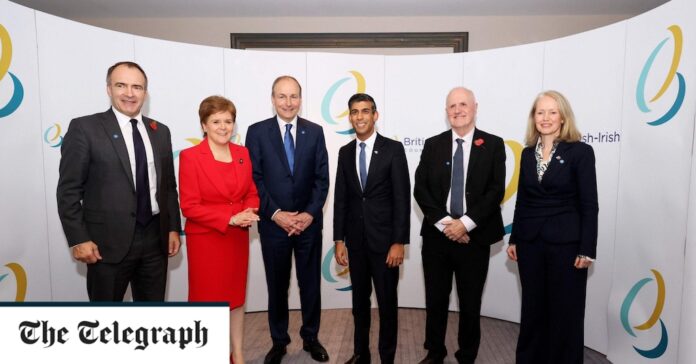The UK and the ROI both have a strong incentive to resolve the current stalemate
The Prime Minister met his Irish counterpart for the first time yesterday, at the British-Irish Council meeting in Blackpool. It would have been a perfect opportunity for Rishi Sunak to remind Taoiseach Micheál Martin of the real content of the Belfast Agreement, as opposed to the imagined annexes that often seem to inform the Irish government’s arguments on Northern Ireland.
The Council was created by the Good Friday deal, as part of its third ‘strand’, which dealt with ‘east west’ relationships spanning the British Isles. The agreement’s first strand set out arrangements for the province’s internal affairs, from which the Republic’s government was specifically excluded, and its second dealt with a limited number of ‘north south’ matters on which the two parts of Ireland could cooperate.
This clearly delineated structure did not prevent Mr Martin from claiming recently that another ‘strand 3’ body, the British-Irish Intergovernmental Conference, should “kick in” and exercise joint authority over Northern Ireland, when Stormont fails to operate. The UK was slow to put the Taoiseach right, and that deferential attitude is unfortunately typical of Britain’s approach to Dublin.
This British-Irish meeting took place against the backdrop of another breakdown in power-sharing in Belfast. The DUP has boycotted the devolved institutions since February, due to the Northern Ireland Protocol, which it says subverted the Belfast Agreement by separating the province politically and economically from the rest of the UK.


